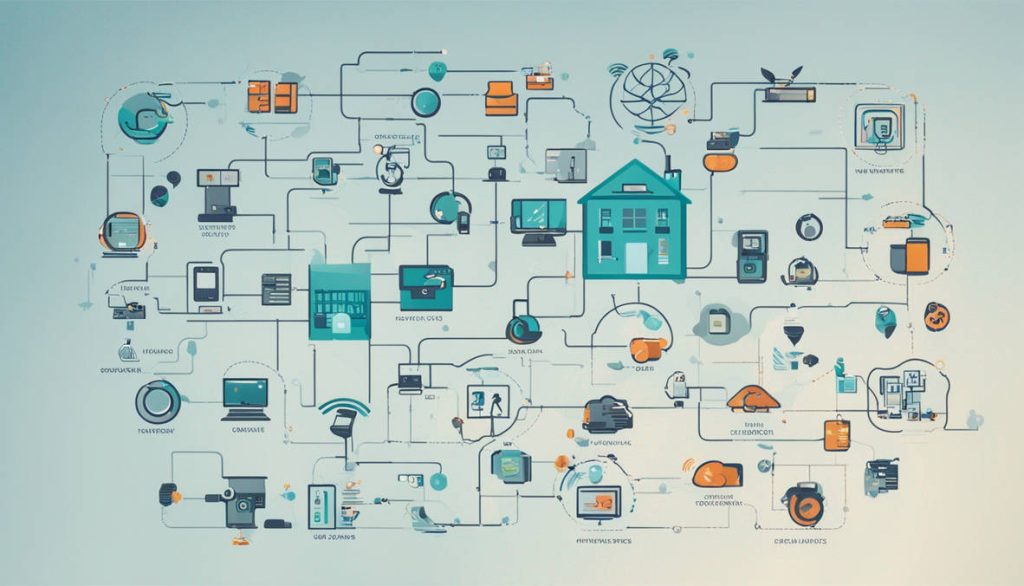Introduction
The Internet of Things (IoT) has become a game-changer for modern enterprises, revolutionizing how businesses operate, make decisions, and interact with their customers. By connecting devices, sensors, and systems, IoT enables seamless data collection, real-time insights, and automation. This transformation leads to improved efficiency, enhanced customer experiences, and innovative business models.
In this blog, we will explore the key benefits of IoT for modern enterprises and how organizations can leverage this technology to drive success.
1. Enhanced Operational Efficiency
One of the biggest advantages of IoT is its ability to improve operational efficiency by automating and optimizing various business processes. IoT-powered sensors and devices help monitor equipment, track inventory, and predict maintenance needs, reducing downtime and increasing productivity.
Key Benefits:
- Predictive Maintenance: IoT-enabled devices can predict equipment failures before they occur, reducing unexpected breakdowns and costly repairs.
- Process Automation: IoT automates routine tasks, minimizing human errors and freeing up employees to focus on strategic activities.
- Resource Optimization: Businesses can track energy usage and reduce wastage, leading to lower operational costs.
2. Improved Decision-Making with Data Analytics
IoT generates vast amounts of real-time data that enterprises can analyze to make better business decisions. With advanced analytics and AI, companies can extract meaningful insights from IoT data to improve strategies, enhance services, and drive innovation.
Key Benefits:
- Real-Time Monitoring: Businesses can monitor key performance indicators (KPIs) in real time, allowing for quick decision-making.
- Data-Driven Insights: IoT devices collect valuable data on customer preferences, market trends, and operational efficiency.
- AI-Enhanced Analytics: Machine learning algorithms can process IoT data to identify patterns, predict trends, and automate decision-making.
3. Enhanced Customer Experience
IoT enables businesses to deliver personalized experiences to customers by gathering data on their preferences and behaviors. Smart devices and connected applications create seamless interactions that improve satisfaction and loyalty.
Key Benefits:
- Personalized Services: IoT helps businesses tailor their offerings based on real-time customer behavior.
- Smart Customer Support: AI-powered chatbots and virtual assistants provide instant support and troubleshooting.
- Seamless Omnichannel Experience: IoT allows businesses to connect various touchpoints, ensuring a consistent customer experience across platforms.
4. Supply Chain and Inventory Management Optimization
IoT enhances supply chain visibility and inventory management by providing real-time tracking of goods, vehicles, and shipments. This reduces losses, improves delivery times, and ensures optimal stock levels.
Key Benefits:
- Real-Time Tracking: GPS-enabled IoT devices help monitor shipments, reducing delays and improving logistics.
- Smart Warehouses: IoT-powered sensors automate inventory tracking, minimizing stock discrepancies.
- Automated Restocking: Businesses can set up IoT systems to automatically reorder products when stock levels are low.
5. Increased Workplace Safety and Security
IoT-powered security systems and smart workplace solutions help businesses enhance safety and prevent unauthorized access. Wearable IoT devices also monitor employee health and safety in hazardous environments.
Key Benefits:
- Access Control Systems: IoT-based security solutions ensure only authorized personnel can access restricted areas.
- Smart Surveillance: AI-powered cameras and motion sensors enhance workplace security.
- Employee Safety Monitoring: IoT wearables track health metrics such as heart rate and detect potential hazards in real-time.
6. Cost Savings and Revenue Growth
By optimizing operations, reducing waste, and enhancing efficiency, IoT contributes to significant cost savings and revenue growth. Businesses can use IoT-driven insights to develop new revenue streams, such as smart products and data-driven services.
Key Benefits:
- Energy Management: Smart IoT systems regulate lighting, HVAC, and other utilities, reducing energy costs.
- Optimized Resource Allocation: Businesses can ensure that assets are used efficiently, minimizing waste and increasing profitability.
- New Business Models: IoT enables companies to create subscription-based services and pay-as-you-go models, unlocking new revenue opportunities.
7. Competitive Advantage and Innovation
Enterprises that adopt IoT gain a competitive edge by staying ahead of market trends and customer demands. By leveraging IoT, companies can develop innovative products and services, setting themselves apart from competitors.
Key Benefits:
- Smart Product Development: IoT-driven insights help businesses create more user-friendly and connected products.
- Enhanced Market Responsiveness: Businesses can quickly adapt to changing consumer preferences and market conditions.
- Faster Time-to-Market: IoT streamlines product testing and development, allowing companies to launch new offerings more efficiently.
Conclusion
The Internet of Things (IoT) is transforming modern enterprises by improving efficiency, enabling data-driven decision-making, enhancing customer experiences, and reducing costs. Organizations that integrate IoT into their operations gain a competitive advantage and unlock new growth opportunities.
As IoT technology continues to evolve, businesses that embrace it will be well-positioned for future success. If you haven’t already, now is the time to explore how IoT can revolutionize your enterprise and drive long-term value.
Read More : regic.net



